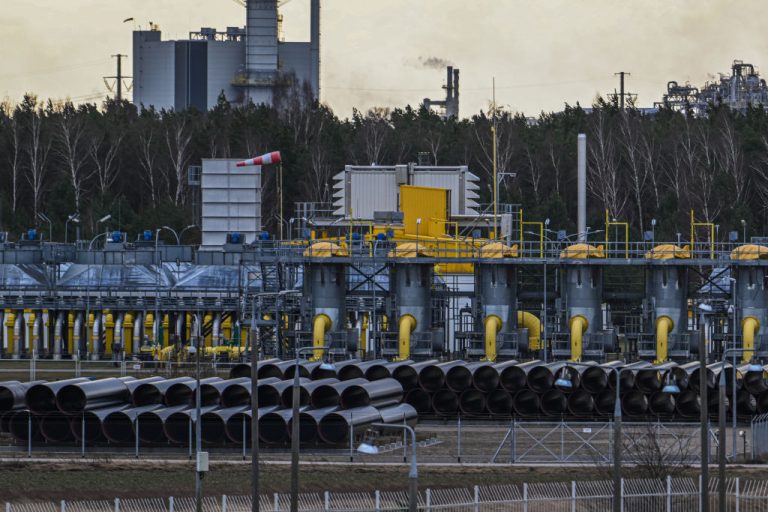On Thursday, March 3, gas was halted in the Yamal-Europe pipeline stretching from Russia to Germany amidst the Russian invasion of Ukraine. A day later, the pipeline resumed operations.
The stop highlighted problems that arise from global sanctions and the need for the United States to become energy independent again as it had been under President Trump. If pro-democracy nations are a reliable energy resource for the world, they protect against the financial strains that arise when authoritarian regimes are in control.
Gas flows stopped
Reuters reported that data from pipeline operator Gascade showed that natural gas heading from Russia to Germany stopped. This came after gas flows slowed and reversed direction to Poland in the east in December 2021.
The slowing of natural gas to Europe played a part in the energy crisis in the continent, which saw the highest gas shortage levels in a decade. Gas and power prices rose at alarming rates, such as in the UK where it cost 350 to 400 pence per therm in December.
A day after the natural gas from Russia to Germany halted, the pipeline resumed operations and gas soon flowed west again.
Success
You are now signed up for our newsletter
Success
Check your email to complete sign up
However, as the Russian invasion of Ukraine commenced at the end of February, the prices rose even greater than before.
Russian oil and gas supplies have been closely watched during the conflict in Ukraine. Russian gas supplies 40 percent of Europe’s demand.
As the Yamal pipeline stopped flowing gas on Thursday, the benchmark natural gas price grew to a “new record-high” with the equivalent of $360 per barrel of oil. At the same time, the benchmark gas price for Europe came at $221 per megawatt per hour (MWh).
Reuters cited that gas flows from Poland to Germany have been at 5.9 million kilowatt-hours per hour (kWh/h) with “renominations” reaching 19.3 million kWh/h until Friday morning.
The rise of gas prices is also factored by “unstable Russian gas supplies and high demand for the fuel” while economies recuperate from the COVID-19 pandemic.
The Yamal-Europe pipeline construction began in 1994 and was fully commissioned in 2006. It spreads across Russia, Belarus, Poland, and Germany with a distance of 4,107 kilometers, carrying 33 billion cubic meters of gas a year.
The construction was mainly performed by Russian-based energy corporation Gazprom, which owns and operates the Russian and Belarussian sections of the pipeline.
Economies hit hard
The global sanctions striking Russia appear to be affecting the West as well, since the country is one of the world’s biggest exporters of crude oil, behind Saudi Arabia.
READ MORE:
- Skyrocketing US Gas Prices Reach $5, Is There a Ceiling?
- British Dock Workers Refusing to Unload Tankers Carrying Russian Natural Gas
- Canadian Banks, Insurance Companies Investing Millions in Russian Oil Companies
As Russia produces more oil and gas than it uses, the country is expected to benefit more from rising prices. At the same time, countries that are not “self-sufficient in energy” will be hurt by higher prices. Since the European Union (EU) is very dependent on Russian gas, it has more to lose from the loss of imports.
At the start of 2022, the EU was paying 190 million euros ($206 million) for Russian gas. After last week, the price increased to 610 million euros ($664 million). The EU also pays $285 million a day for Russian crude oil.
As a result, leaders of Western European countries, like Germany’s Olaf Schulz, warned on Monday that “Europe was too dependent on Russian energy supplies.” British Prime Minister Boris Johnson also said that sanctioning oil and gas “could not happen overnight” and must be done in a “step by step” process.
Russian Deputy Prime Minister Alexander Novak warned that the sanctions imposed by the West will be “catastrophic” with the spike in oil prices.
“The surge in prices would be unpredictable,” Novak said. “It would be $300 per barrel if not more.”
According to the International Energy Agency (IEA) on Thursday, the EU could be less reliant on Russian natural gas by “more than one-third within a year” by choosing other suppliers and using alternative energy sources.
The world will look to President Biden to see if he follows in the footsteps of President Trump, making America energy independent again. For example, if Biden completes the Keystone XL Pipeline, the United States could be a long-term energy resource for its allies in Europe.














